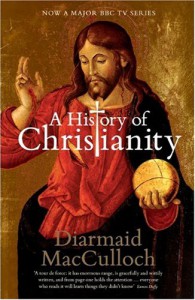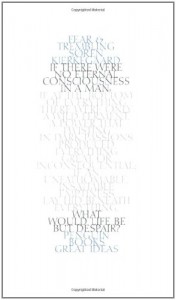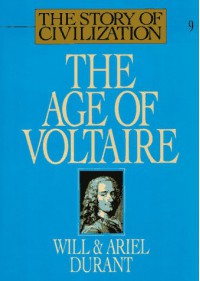
The author at the end of this book makes an apologetic like statement after 'having taxed the reader's patience with a long and abstract book....'. This is one reader who was never taxed and fully appreciated the author's abstract thoughts. Most books that I enjoyed as much as this one turn out to be dense and difficult for me to recommend since they are hard to follow but this one was a pleasant read while at the same time dealing with somewhat complex ideas and was able to tie together most of the books or Great Courses I've read or listened to over the last year (2016).
Slightly over a year ago I ran out of popular science books and came across[a:Martin Heidegger|6191|Martin Heidegger|https://images.gr-assets.com/authors/1217243699p2/6191.jpg] [b:Being and Time|92307|Being and Time|Martin Heidegger|https://images.gr-assets.com/books/1298438455s/92307.jpg|1309352]. That opened my eyes to the value of primary source books on thinking and the nature of being. Instead of reading books or Great Courses about the famous philosophers or schools of thought, I started to branch into the works of the great thinkers themselves.
The author realizes that their has been a 2400 year old conversation around the intelligibility of the universe and the world we live in. He starts with the pre-Socratics and he's going to end the discussion with Walt Whitman.
The author wants to bring Joy back into the world by taking away our sense of entitlement and giving us Gratitude by re-introducing Pride. The author really doesn't like 'nihilism' and is going to argue that the world is eternal and divine making his 'born-again' paganism more than just pantheism and wants to bring back mystery. He even justifies this by embracing 'patriotism', and I would even say that he would not agree with the sentiment 'there but for the grace of God go I' because he puts the responsibility only on the individual and he'll even say that we are under 'the stupor of political correctness' today and that's what Nietzsche was getting at. The author is clearly an anti-humanist and anti-modernist and not particularly pro-Enlightenment and loves his Edmund Burke (Burkeian Bells always go off in my head when conservatives quote Burke, and it's clear this author is a conservative but one who doesn't believe in God putting him in a corner of sorts nearly alone), and he's got a weird Freudian psychoanalytical streak (just look up 'breast feeding' in his index, btw, that index is one of the best I've ever come across. I love a good index, and that is a good index!). All the things within this paragraph are major themes within this book, and for which I tend not to agree with whatsoever, but I still would recommend this book strongly because of the way the author puts all the pieces together and for how the book overlapped with my last years reading list so closely and allowed me to put the great thinkers into a proper context.
To fully understand why this book is so cool I'm going to relate it to some of my last years reading. I was concurrently reading [b:A History of Christianity: The First Three Thousand Years|6957725|A History of Christianity The First Three Thousand Years|Diarmaid MacCulloch|https://images.gr-assets.com/books/1348906986s/6957725.jpg|7194000] and I was completely lost on the meaning of Christianity. It wasn't the fault of the book, after all it was a history book, but [a:Anthony T Kronman|15946794|Anthony T Kronman|https://s.gr-assets.com/assets/nophoto/user/u_50x66-632230dc9882b4352d753eedf9396530.png] gave me the necessary insights. He'll explain how it was Augustine who will create a 'necessary' God because the Christian God is a creator God and Pelagius tries to sneak in human behavior and prayers making a difference to God. The Catholics side with Augustine and his concept of 'free will' for the next 800 years meaning that our salvation comes through Grace. This argument is going to play out through out the middle ages up until Thomas Aquinas and then William of Ockham will try to have the last word on it by disagreeing with Thomas Aquinas by declaring that nothing is necessary for God and the universe must be contingent because God is omnipotent.
The author is going to take the argument up to Luther and the reformation. In 2016 I had been reading many different books related to this but the author was able to tie them all together for me because the books (and Great Courses) were only focused on one particular aspect of the situation, this book tied them all together for me.
Also, last year I focused on 'being' and 'ethics' and 'metaphysics'. I had read various works by and on [a:Aristotle|2192|Aristotle|https://images.gr-assets.com/authors/1390143800p2/2192.jpg] such as his [b:Metaphysics|208036|Metaphysics|Aristotle|https://images.gr-assets.com/books/1355049704s/208036.jpg|2479557], [b:The Nicomachean Ethics|19068|The Nicomachean Ethics|Aristotle|https://images.gr-assets.com/books/1472992134s/19068.jpg|2919427], [b:Masters of Greek Thought: Plato, Socrates, and Aristotle|7723891|Masters of Greek Thought Plato, Socrates, and Aristotle (Great Courses, #4460)|Robert C. Bartlett|https://s.gr-assets.com/assets/nophoto/book/50x75-a91bf249278a81aabab721ef782c4a74.png|10481760] and a general book on Greek Philosophers, [b:The Dream of Reason: A History of Western Philosophy from the Greeks to the Renaissance|26530383|The Dream of Reason A History of Western Philosophy from the Greeks to the Renaissance|Anthony Gottlieb|https://images.gr-assets.com/books/1444265459s/26530383.jpg|681250]. Each of these were enlightening in their own way, but this book, "Born-Again" made it such that I no longer recite Aristotles' four causes from memory now I realized what he really meant and his causes just flows naturally out of me. This would not have happened if not for this book, and I now realize why the species (form) of Aristotle is such a problem for understanding a God who must know of the individual.
I'm being somewhat presumptuous in calling the author an anti-humanist, but it was clear to me. The author was definitely more interested in [a:Heidegger Martin|2931175|Heidegger Martin|https://s.gr-assets.com/assets/nophoto/user/u_50x66-632230dc9882b4352d753eedf9396530.png]'s post [b:Being and Time|92307|Being and Time|Martin Heidegger|https://images.gr-assets.com/books/1298438455s/92307.jpg|1309352] work. I have just recently reread [b:Being and Time|92307|Being and Time|Martin Heidegger|https://images.gr-assets.com/books/1298438455s/92307.jpg|1309352] and it's clear that Heidegger takes an anti-humanist position after [b:Being and Time|92307|Being and Time|Martin Heidegger|https://images.gr-assets.com/books/1298438455s/92307.jpg|1309352]. Heidegger tries to bring the mystery back into the universe and hearkens back to the Greeks of the Iliad with their 'truth as disclosure' and curses the 'dehumanization of man' because truth gets equated with 'correctness' (what the post "Being and Time" Heidegger would call the 2000 year mistake). This book "Born-Again' defends that Heideggerian position and the excellent Great Course lecture that I listened to last year, [b:Modern Intellectual Tradition: From Descartes to Derrida|10982690|Modern Intellectual Tradition From Descartes to Derrida|Lawrence Cahoone|https://s.gr-assets.com/assets/nophoto/book/50x75-a91bf249278a81aabab721ef782c4a74.png|15901068] shows how Heidgegger took an anti-humanist turn.
The author really likes Spinoza and Nietzsche and will step the reader through their major works and what they are really getting at. Last year, I read [a:Spinoza|13980412|Spinoza|https://s.gr-assets.com/assets/nophoto/user/u_50x66-632230dc9882b4352d753eedf9396530.png]'s [b:Ethics|205218|Ethics|Baruch Spinoza|https://images.gr-assets.com/books/1462223700s/205218.jpg|1218789], and [a:Friedrich Nietzsche|1938|Friedrich Nietzsche|https://images.gr-assets.com/authors/1455294131p2/1938.jpg]'s [b:Thus Spoke Zarathustra|51893|Thus Spoke Zarathustra|Friedrich Nietzsche|https://images.gr-assets.com/books/1480901846s/51893.jpg|196327]. I loved Spinoza and relate to him. Nietzsche clearly reworks Spinoza but takes out Spinoza's humanism. That's why the author probably prefers Nietzsche in his 'born-again paganism'. Spinoza has the formulation God is Nature and Nature is God, but he also allows for a panentheistic (the universe is alive and is God) interpretation, in [a:Ernest Holmes|79431|Ernest Holmes|https://s.gr-assets.com/assets/nophoto/user/u_50x66-632230dc9882b4352d753eedf9396530.png]'s [b:The Science of Mind|149197|The Science of Mind|Ernest Holmes|https://images.gr-assets.com/books/1349012687s/149197.jpg|143993] which I also read last year he's got a similar formulation or at least to the point where he would say "the man who thinks is God, and God thinks". The author, Kronman, will in detail describe Nietzsche's 'rank order of being', "a picture of the world that organizes a larger order of it in accordance with its own principle of interpretation is more powerful and therefore real than the viewpoints it incorporates in itself". This leads to Nietzsche's view point of "perspectives". Something worth understanding and for which this book does a superb job at. Also, since I do like learning and sharing, Nietzsche would say that everything that is wants to maintain what it is and always wants to take that which is around it (a quick summary of 'will to power', but the author really does a good job at explaining this).
Part of understanding where the author is coming from is by seeing who he doesn't talk about. He'll barely mention [a:Soren Kierkegaard|16308674|Soren Kierkegaard|https://s.gr-assets.com/assets/nophoto/user/u_50x66-632230dc9882b4352d753eedf9396530.png], [a:Hegel G W F|14721821|Hegel G W F|https://s.gr-assets.com/assets/nophoto/user/u_50x66-632230dc9882b4352d753eedf9396530.png] or [a:Parmenides|357208|Parmenides|https://images.gr-assets.com/authors/1298909900p2/357208.jpg]. Last year I read, [b:Fear and Trembling|24965|Fear and Trembling|Søren Kierkegaard|https://images.gr-assets.com/books/1309286516s/24965.jpg|813445], [b:Phenomenology of Spirit|9454|Phenomenology of Spirit|Georg Wilhelm Friedrich Hegel|https://images.gr-assets.com/books/1425522818s/9454.jpg|995802] and [b:Parmenides|381185|Parmenides (Philosophical Library)|Plato|https://images.gr-assets.com/books/1390394394s/381185.jpg|370973] by Plato. Each of these thinkers go against what he's trying to show. Kierkegaard would have the answer Kronman is looking for in his Knights of Truth and how we each must take our own stand based on ourselves, Hegel brings spirit alive by having it become aware of itself, and Parmenides would cause the most difficulty for Kornman to resolve because the author despises relativism (he'll use the word 'nihilism') but he really wants is to bring the necessary, the certain, and the universal back into the world, but he can't do it with God and Revelation because he rejects those two things.
Parmenides gives us the block universe of Einstein. The author Kornman states what he really is trying to do is take Einstein's formulation of the God of Spinoza and bring intelligibility to the world itself through adopting the eternal, divine and using science. This is definitely a problem I had with this book. The author really didn't understand the philosophy of science and its issues and I would recommend the pedantic and dense book [b:Philosophy of Science: The Central Issues|31844|Philosophy of Science The Central Issues|Martin Curd|https://images.gr-assets.com/books/1388363804s/31844.jpg|32060], one of my all time favorite books which I read last year, but would be reluctant to recommend because it is a tough read. BTW, [a:Ludwig Wittgenstein|7672|Ludwig Wittgenstein|https://images.gr-assets.com/authors/1429659356p2/7672.jpg] is barely mentioned, in his [b:Tractatus Logico-Philosophicus|491127|Tractatus Logico-Philosophicus|Ludwig Wittgenstein|https://images.gr-assets.com/books/1347399977s/491127.jpg|3157863] he will say there is no structure to the world, but that would go against what the author is trying to say.
I haven't yet got to [a:Kant Immanual|5160419|Kant Immanual|https://s.gr-assets.com/assets/nophoto/user/u_50x66-632230dc9882b4352d753eedf9396530.png]. Last year I just finished his [b:Critique of Pure Reason|18288|Critique of Pure Reason|Immanuel Kant|https://images.gr-assets.com/books/1348663530s/18288.jpg|1072226] and that is a recurring character within this book. He does one of the best jobs explaining what it means in the context of his world view. The author definitely likes Kant because the author clearly dislikes relativism of any kind, but at the same time the author will show how Kant lacks a proper 'ground' when need be, and as a reader of Kant, it's clear that Kant must create his categories of intuition (transcendence) in order to escape relativism.
The author will show in detail five modern works of literature and how they relate to what he's been talking about. He does such a good job I can recall all five of them but I won't. I'll just mentioned I read one of them, both the comic book version, "In Search of Lost Time" the graphic novel and the real book version (don't laugh, the Graphic Novel is incredibly pleasing and informative). He made me fully understand how they relate to Nietzsche and Spinoza.
The author really likes reason. Cause and effect rule supreme. Everything happens for a reason and he embraces the 'principal of sufficient reason'. Similar to two other books I read last year, [b:On the Nature of Things|195771|On the Nature of Things|Titus Lucretius Carus|https://images.gr-assets.com/books/1347656033s/195771.jpg|189338] and [b:Monadology|346074|Monadology|Gottfried Wilhelm Leibniz|https://images.gr-assets.com/books/1348203141s/346074.jpg|14377158]. The first explains the world in terms of atoms and the second in terms of monads.
Also, I would like to relate what my favorite fictional book I have ever read and I did read it last year, [b:Gravity's Rainbow|415|Gravity's Rainbow|Thomas Pynchon|https://images.gr-assets.com/books/1414969925s/415.jpg|866393] to this book. Gravity's Rainbow is concerned with the "temporal bandwidth" which gives us a infinity of time as death approaches, the rebirth of all parts including the machine gun from WW I which leads to an eternal recurrence (a big theme within "Born-again"), there is no extinction just renewal, and everything happens for a reason or nothing happens for a reason (paranoia and anti-paranoia), Kornman favors the paranoia view point.
A final book that I read last year that I'll mention that relates to this book is [b:Ecclesiastes, or The Preacher|535430|Ecclesiastes, or The Preacher|Anonymous|https://images.gr-assets.com/books/1336739122s/535430.jpg|522901]. By far my favorite book in the Old Testament. The real theme of that book (and also a theme within Gravity's Rainbow) is that the race doesn't always go to the swiftest or the smartest, but time and chance will often decide. Those are themes that I embraced, or as I said above "there but for the Grace of God go I", a sentiment which runs counter to "Born-Again". I could say that if I were to relive this life, I would not be able to give myself any general advice to have improved my lot because I was born this way and couldn't really be any different from who I was. Time and chance have made my destiny. The author, clearly thinks we are to blame for our own problems, but I believe that the luck we have and unearned gifts we have received make us who we are.
Overall, any book in which I can relate almost all of my previous years reading too, is a good book and I would recommend it, but mentioned that the 'born-again paganism' is not why I'm recommending the book, but I would recommend it for other reasons.
 Three essays each coherent. This is Nietzsche's best work. Almost all of his major ideas lurk within this book. I would recommend the audio version. There's just something about Nietzsche that when he's read aloud you just feel the contempt and frustration you know he has for mankind and even the reader of his book.
Three essays each coherent. This is Nietzsche's best work. Almost all of his major ideas lurk within this book. I would recommend the audio version. There's just something about Nietzsche that when he's read aloud you just feel the contempt and frustration you know he has for mankind and even the reader of his book. 



















